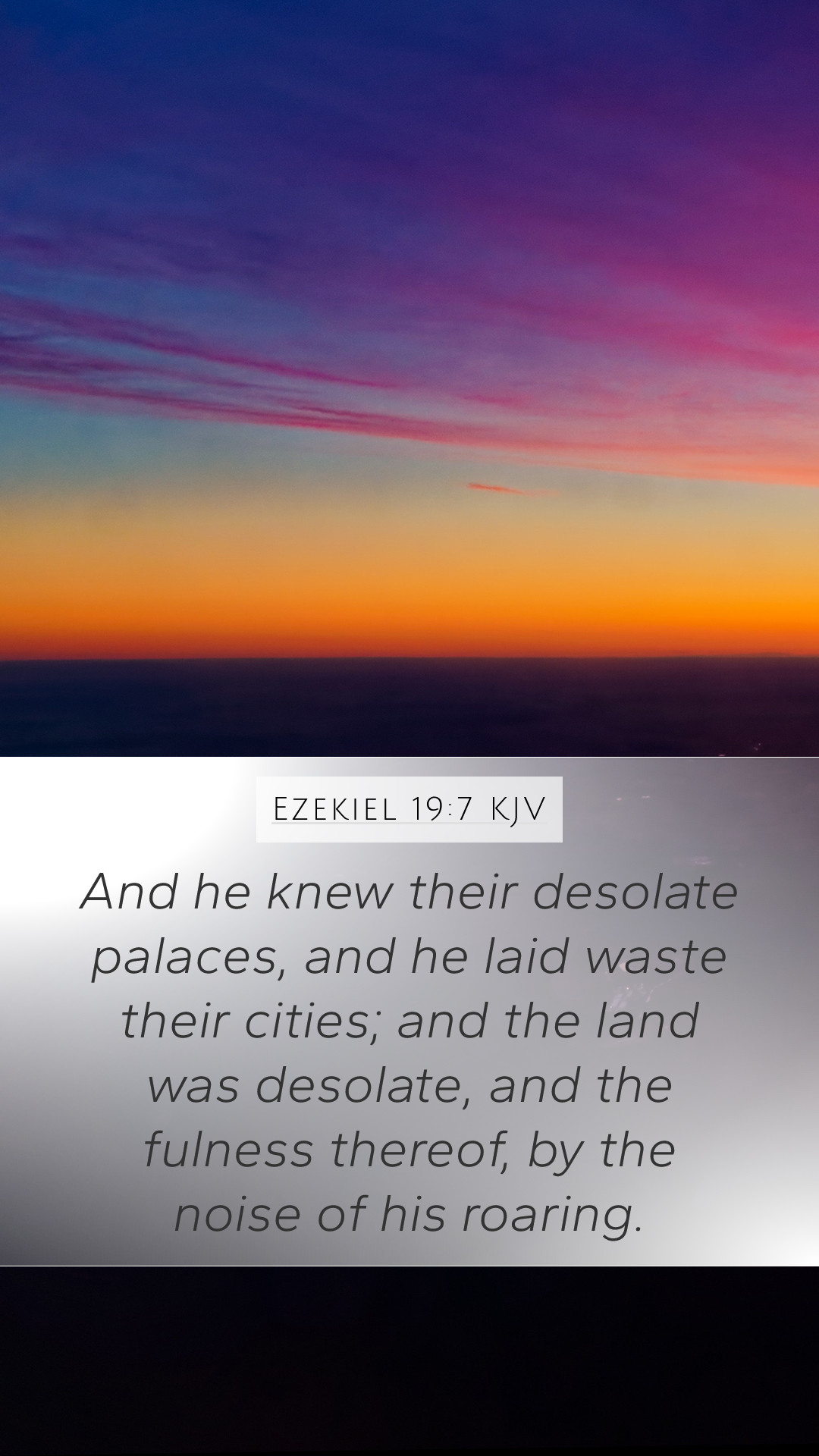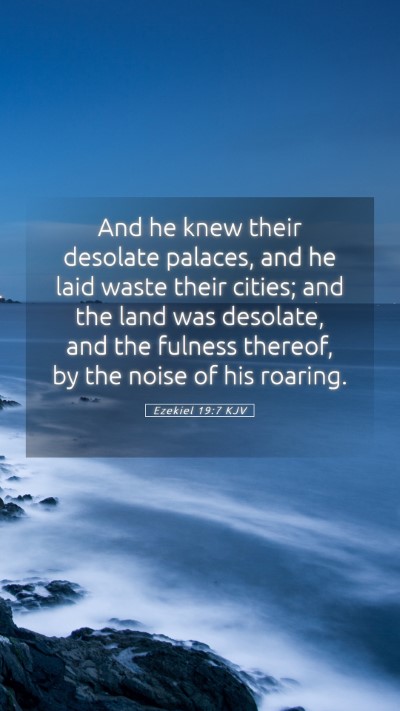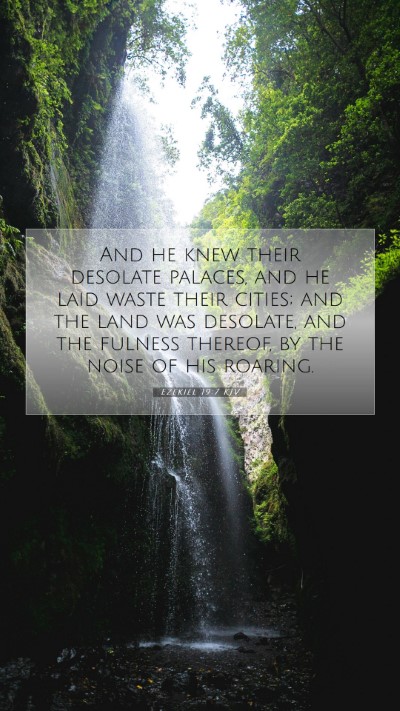Ezekiel 19:7 - Understanding the Meaning of This Verse
This verse, Ezekiel 19:7, is rich in meaning and offers profound insight into themes of strength, leadership, and judgment within the prophetic context of the Old Testament. Below, we present a synthesis of insights from public domain commentaries to facilitate a deeper bible verse understanding.
Verse Text
Ezekiel 19:7: "And he knew their desolate places, and laid waste their cities; and the land was desolate, and all that was therein, because of the noise of his roaring."
Commentary Insights
-
Matthew Henry:
Henry interprets this verse as a description of the destructive power of the king of Babylon. He emphasizes how the king's conquests resulted in desolation, showcasing the consequences of God's judgment upon His people. In historical context, this reflects the fate of Judah as a result of their unfaithfulness and divine displeasure.
-
Albert Barnes:
Barnes elucidates that this verse illustrates the fierce and terror-inducing nature of the Babylonian king. His roaring signifies authority and conquest, representing the end of a royal line that failed to guide the people in righteousness. Barnes highlights the spiritual lesson regarding the importance of godly leadership.
-
Adam Clarke:
Clarke discusses the metaphorical use of the lion and the devastation he brings with his roar. The imagery serves to reflect the might of the Babylonian empire and the vulnerability of the cities they conquer. Clarke indicates that the desolation mentioned is not merely physical but also spiritual, pointing to the emotional wreckage and loss of community faith.
Key Themes
- Divine Judgment: The verse stands as a testament to God's sovereignty and the consequences of disobedience. The destruction represents God's judgment against His people.
- Leadership Failure: The reference to the leadership (the lion) indicates the vital role of righteous governance. When leaders fail, the people suffer.
- Spiritual Desolation: There’s an underlying message about the spiritual aftermath of such events, highlighting the importance of maintaining faith and community in adverse times.
Application for Today
In applying bible study insights from Ezekiel 19:7, modern readers can reflect on the significance of leadership in their lives—whether in families, churches, or communities. The verse prompts an evaluation of how leadership can either lead to flourishing or destruction.
Furthermore, the consequences of disobedience are timeless. This invites personal reflection on individual and communal faithfulness to God's teachings, emphasizing the need for spiritual vigilance.
Cross References
- Jeremiah 4:7: "The lion has come up from his thicket..." - A similar imagery of destruction.
- Isaiah 5:25: "Therefore is the anger of the LORD kindled against his people..." - The theme of divine judgment continues.
- Lamentations 1:1: "How doth the city sit solitary..." - Reflections on desolation.
Conclusion
Ezekiel 19:7 serves as a powerful reminder of the impact of leadership and faith within society. By exploring the bible verse commentary and engaging with both historical context and spiritual significance, believers are better equipped to understand Scripture and apply its lessons to their daily lives.


